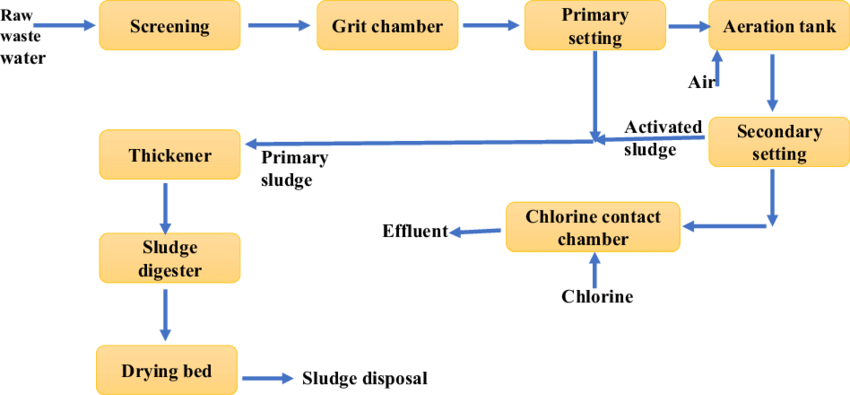Unknown Facts About Reclaim Waste
Unknown Facts About Reclaim Waste
Blog Article
The Greatest Guide To Reclaim Waste
Table of ContentsThe Best Guide To Reclaim WasteSee This Report about Reclaim WasteThe Basic Principles Of Reclaim Waste Some Known Details About Reclaim Waste A Biased View of Reclaim Waste
Residential sewage waste refers to the waste and items from a property septic storage tank. The proper monitoring and disposal of residential sewer waste call for fluid waste to be moved to a sewage therapy plant where the correct approaches and devices are used to cleanse and dispose of waste.
Commercial waste frequently consists of potential hazards, such as combustible materials or a mixture of fluid and strong waste products, and calls for an advanced and thorough disposal procedure. The disposal of industrial waste typically involves the filtration of waste prior to transportation to make certain secure and appropriate disposal. Hazardous waste is developed from byproducts and runoff of commercial procedures and production.
This type of waste can not utilize the exact same sewer management transport or procedures as septic or business fluids. The hazardous waste management process requires the evaluation and screening of fluid waste before it undertakes the disposal procedure (liquid waste disposal). Runoff waste is the liquid waste that originates from runoff and excess stormwater in very populated areas or cities
Drainage waste can trigger contamination and flooding otherwise taken care of effectively. Find out more about sewage system cleansing and waste management. Guaranteeing appropriate waste administration can stop disasters and minimize environmental damage. Both people in domestic setups and professionals in commercial or production sectors can benefit from comprehending the procedures and regulations of liquid waste administration.
7 Easy Facts About Reclaim Waste Shown
Call PROS Providers today to find out about our waste management and disposal services and the proper means to take care of the fluid waste you create.
(https://fliphtml5.com/homepage/kekhp)This supposed 'wastewater' is not just a crucial resource however, after treatment, will be launched to our land, rivers or the sea. Made use of water from toilets, showers, bathrooms, kitchen area sinks, laundries and commercial procedures is understood as wastewater.

water utilized to cool equipment or clean plant and devices). Stormwater, a form of wastewater, is runoff that moves from agricultural and metropolitan locations such as roofs, parks, gardens, roads, paths and seamless gutters into stormwater drains, after rain. Stormwater streams untreated straight to neighborhood creeks or rivers, at some visite site point getting to the sea.
Top Guidelines Of Reclaim Waste
In Queensland, the majority of wastewater is dealt with at sewer treatment plants. Wastewater is transferred from residential or industrial sites with a system of sewers and pump terminals, referred to as sewerage reticulation, to a sewer therapy plant. Regional federal governments develop, preserve and run most sewer therapy plants. Operators are licensed under the Environmental Management Act 1994 to release treated wastewater at an appropriate ecological criterion right into rivers.
The Division of Natural Resources suggests local federal governments about managing, operating and maintaining sewerage systems and treatment plants. In unsewered areas, city governments might need owners to set up specific or family sewage therapy systems to deal with residential wastewater from bathrooms, cooking areas, restrooms and laundries. The Division of Natural Resources authorises the use of household systems when they are shown to be efficient.
In some brand-new class, therapy of some stormwater to remove trash, sand and crushed rock has actually begun utilizing gross contaminant traps. Wastewater therapy occurs in four phases: Removes solid issue.
Uses small living organisms knows as micro-organisms to damage down and eliminate continuing to be liquified wastes and great particles. Micro-organisms and wastes are included in the sludge.
All About Reclaim Waste
Nutrient elimination is not offered at all sewer treatment plants because it needs costly specialized tools. Clear liquid effluent produced after therapy might still contain disease-causing micro-organisms - liquid waste disposal melbourne.

Most wastewater flows right into the sewerage system. Under the Act, neighborhood federal governments administer authorizations and permits for eco pertinent activities (Ages) entailing wastewater releases that could have a local effect.
Getting The Reclaim Waste To Work
Otherwise, examples are considered research laboratory analysis. Usually lots of examinations are needed to develop the levels of each of the various contaminants such as oils, hefty metals and chemicals in water. Monitoring supplies valid details regarding water quality and can confirm that licence problems are being fulfilled. The information gotten via tracking supplies the basis for making water top quality choices.
Report this page